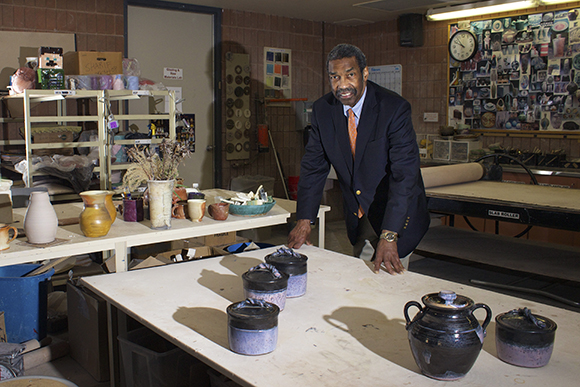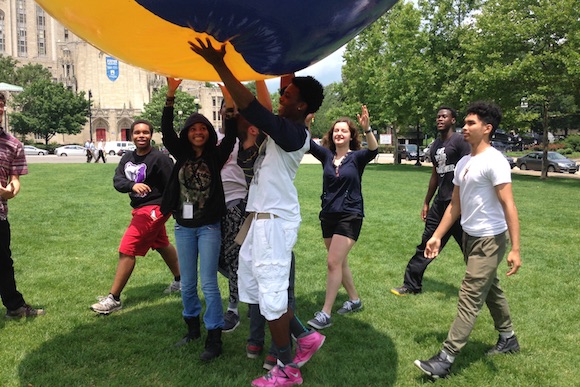Bill Strickland describes himself as “a kid from the neighborhood who got involved in the arts.”
While that is certainly true, he might also be selling himself a bit short — Strickland, who is the President and CEO of the Manchester Bidwell Corporation, is a MacArthur Fellowship “genius” grant winner, founder of the Grammy-winning subscription jazz series MCG Jazz, and author of Make the Impossible Possible, a book about a kid from Pittsburgh’s ghetto whose crusade to inspire others to achieve the extraordinary would lead him to a board seat at the National Endowment for the Arts and a speaking gig at Harvard, among other things.
It all started in the 1960s in the Manchester neighborhood on Pittsburgh’s North Side, where Strickland grew up as a disengaged youth. Then he met high school art teacher Frank Ross. Ross showed Strickland the power of art, education and community, and instilled in him an interest in working with the kids through an after-school arts program.
In 1968, Strickland launched his own small after-school ceramics program. That initiative is now called the Manchester Craftsmen’s Guild Youth & Arts program — it serves public school students via classes in ceramics, design, digital imaging, 3-D manufacturing and photography.
By 1972, Strickland had also taken over leadership of the Bidwell Training Center, a struggling job training center near the Manchester Craftsmen’s Guild. He rebuilt the organization into a “pretty good” job training and vocational center in partnership with various Pittsburgh area industry leaders.
Once again, Strickland is being humble: This “pretty good” vocational center is a nationally accredited and state licensed adult career training institution, with programs that range from horticulture to medicine to the culinary arts.
“We partner with industry leaders to develop curriculum specific to their industries,” explains Strickland. “We have these industry advisory boards that work directly with us. The programs we develop are industry compatible, so as to have a high degree of placement and retention.”
Manchester Bidwell’s arts education opportunities for public school students are directly connected to this work.
“Our goal is to improve the retention and graduation rates of public school students using arts as an intervention strategy,” says Strickland. “As kids get better in the arts, their retention improves. We graduated 99 percent of our kids last year. We average 90 percent, and a lot of these students go on to college. I think this is a very powerful way of adding value to what these kids need to have to be successful.”
Once out of school, arts program alumni can continue on with Manchester Bidwell via vocational training (for ages 18 and up). By talking to industry leaders to determine their workforce and skills training needs, they have been able to make these programs incredibly effective.
According to Strickland, between 75 and 85 percent of Manchester Bidwell’s vocational students go to work every year in the industries in which they were trained. These numbers are consistent across Manchester Bidwell’s eight affiliate sites.
Those affiliates operate in cities across the United States and follow the same model as the one in Pittsburgh. Five more sites are in the works and should be online in the next 18 months. Strickland’s goal is to eventually have 100 centers throughout the country.
While Strickland has reason to be proud of the programs he has built, he remains steadfastly humble. To him, the impactful work of Manchester Bidwell is a relatively simple matter.
“I decided I wanted to get involved with the arts in the community and that’s how this started,” he says. “This has really been a 40-year story of one neighborhood.”
This profile was originally published by Urban Innovation Exchange in partnership with Meeting of the Minds and Kresge Foundation. For more stories of people changing cities, visit UIXCities.com and follow @UIXCities.



